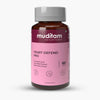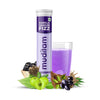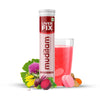Liver Health and Its Impact on Digestive Health
Last updated on:
Now, when we say digestion, we first think about the stomach and intestines. But one of the organs of utmost importance in the process of digestion is the liver. A healthy liver is the pillar of any digestive system. When your liver is not working well, you begin to have digestive problems that can, in turn, lead to many other health problems.
In this blog, we will enlighten you on how your liver relates to the digestive system, the signs of liver involvement in digestive disorders, and how to support the liver through natural methods, supported by our trusted Fatty Liver Medicine.
Understanding the Liver’s Role in Digestion
Physiologically speaking, the liver is the largest organ located inside the human body, performing more than 500 principal functions. Some digestive functions are directly implicated in the actual working of the digestive system. Here are some important functions the liver performs in digestion:
1. Bile Production
The liver produces bile, a digestive juice that is stored in the gallbladder until food enters the small intestine, where the bile is secreted to assist in fat digestion. Bile is required for your body to be able to properly digest fatty foods.
2. Toxin Removal
The river functions as a natural filter. It removes toxins, chemicals, and waste products from the blood, including those from processed foods, alcoholic beverages, and drugs.
3. Support of Metabolism
The liver aids in the metabolism of carbohydrates, proteins, and fats. The hepatocytes convert excess glucose to glycogen for storage and later use to maintain energy levels and blood sugar balance.
4. Storage of Nutrients
The liver is responsible for storing the important nutrients required by the body, such as iron, copper, and vitamins A, D, E, and K. All these nutrients are required later as and when the body needs it. These have more importance in keeping your digestive system vigorous.
When the Liver Struggles, Digestion Suffers
Once your liver becomes sluggish or fatty, the entire digestive process gets disturbed. This very prevalent condition is referred to as Non-Alcoholic Fatty Liver Disease (NAFLD). It implicates the accumulation of fat within the liverhampers the body's usual functioning.
Some recognizable symptoms of liver digestive disorders are:
- Constant slightly bloated feeling or fullness
- Gas and Indigestion
- Heavy feeling or sluggishness after food
- Constipation or always having irregular bowel movements
- Loss of Appetite
- Pain in the right upper quadrant or discomfort.
- These are warning signs for possible liver support.
Also Read: The Role of Turmeric in Liver Health
What Causes Liver and Digestive Imbalance?
There are many reasons why liver health can be affected, especially in today’s fast-paced lifestyle:
- Poor diet: High intake of fried, sugary, or processed food stresses the liver.
- Lack of exercise: Leads to fat accumulation in the liver.
- Alcohol: Excessive drinking damages liver cells.
- Stress: Impacts the liver's ability to function smoothly.
- Medicines: Overuse of certain drugs can harm the liver.
All these factors can lead to poor liver function, which eventually causes digestive problems and overall weakness in the body.
How to Naturally Improve Liver and Digestive Health
The great thing for a liver is that it is an organ that can heal itself, and with proper care, it comes back to normalcy and functionality. The following are some of the ways that you could easily consider in taking care of the liver and assisting with digestion:
1. Balanced Diet
Bring in green leafy vegetables, fruits, whole grains, and healthy fats through nuts and seeds into the menu.
2. Drink Water
A good amount of water conserves the liver from flushing out toxins. Of which, at least 8-10 glasses of water should be taken each day.
3. Stay Active
Exercise aids in the burning of excess fat and helps reduce fatty liver. A brisk daily 30-minute walk can achieve wonders in this area.Exercise aids in the burning of excess fat and helps reduce fatty liver. A brisk daily 30-minute walk can achieve wonders in this area.
4. Limit Alcohol
Too much alcohol is detrimental to liver cells. Curb the amount you take, or it is best to do away with it completely.
5. Use of Herbal Support
Ayurvedic herbs like Kutki, Kalmegh, Bhumiamalaki, and Punarnava have importance in liver detoxification and repair. They support bile flow and digestion, too.
Support Liver Naturally with Fatty Liver Medicine
If you are facing symptoms of poor liver function or have been diagnosed with a fatty liver, our Fatty Liver Medicine offers a natural and safe solution.
Made with powerful Ayurvedic herbs, this medicine:
- Helps reduce fat in the liver
- Detoxifies the liver naturally
- Improves bile secretion
- Relieves digestive issues like bloating, gas, and constipation
- Supports long-term liver and gut health
Our Fatty Liver Medicine is free from harmful chemicals and works gently with your body to restore balance.
Conclusion
The digestive system and the liver go hand in hand. A healthy liver always ensures good digestion, nutrient absorption, and a well-boosted immune system. A weak liver leads to poor digestion, discomfort, and a bad health.
Would you take charge of your liver health with a liver-friendly lifestyle and trusted herbal medicines such as our Fatty Liver Medicine? With this, you can feel energetic and balanced.
You May Also Like:













